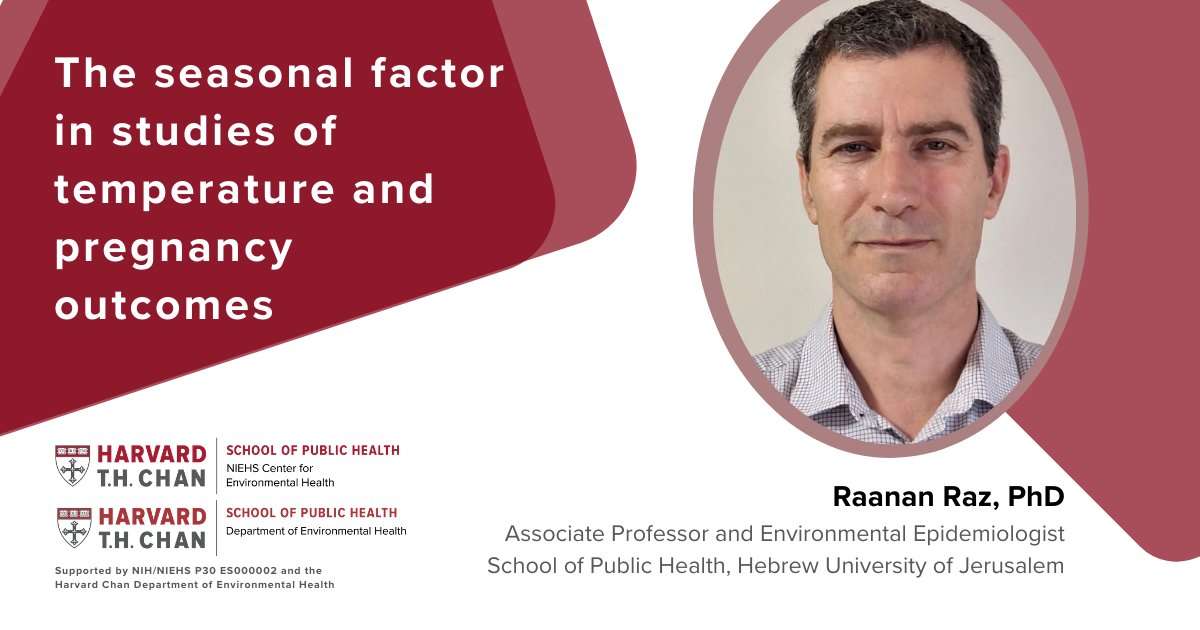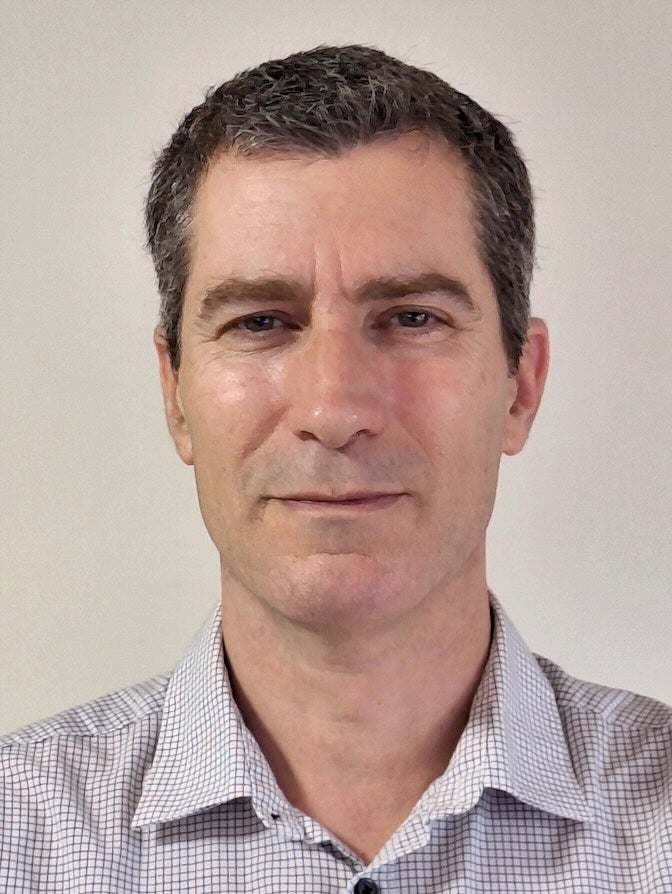
The seasonal factor in studies of temperature and pregnancy outcomes with Raanan Raz, PhD

Please join the Harvard Chan NIEHS Center for Environmental Health and the Department of Environmental Health for a talk by Raanan Raz, PhD, of the Hebrew University of Jerusalem. Dr. Raz will discuss “The seasonal factor in studies of temperature and pregnancy outcomes.”
This event will be held in person (HSPH Bldg. 1, 1302) and via Zoom. Register here
Abstract
Temperature and pregnancy outcomes studies typically adjust for seasonality to prevent confounding by factors that change seasonally. However, actual confounding is not always evaluated. Some studies define seasonality based on birth dates, while others use the last menstrual period (LMP). For specific outcomes, such as preterm birth, the birth date functions as a post-exposure collider, and its use may induce collider bias. Seasonal factors may also be included as time-varying covariates when associations are analyzed using a survival model. Finally, in some climates, seasonal changes account for most of the variability in the temperature exposure variable. This allows for using seasonal factors to illustrate the implications of different realistic exposure scenarios on risk.
This lecture will demonstrate the implications of possible methodological approaches to seasonality on confounding, collider bias, and risk quantification using a study of temperature and preterm birth in Israel.
About the speaker
Raanan Raz is an associate professor and environmental epidemiologist with the School of Public Health at the Hebrew University of Jerusalem. He completed his Bachelor’s degree in computer science, his MSc in epidemiology and preventive medicine, and his PhD in neuroscience. In his post-doctoral research, he studied associations between air pollution and autism at the Harvard T.H. Chan School of Public Health under the supervision of Prof. Marc Weisskopf. His current research focuses primarily on climate health impacts on women’s health and child development and the climate footprint of various healthcare activities. In addition, he studies causal inference in epidemiology and methods to reduce bias in health studies.
Speaker Information
Organizers
ⓘ Harvard Chan School hosts a diverse array of speakers, invited to share both scholarly research and personal perspectives. They do not speak for the School, and hosting them does not imply endorsement of their views, organizations, or employers.
